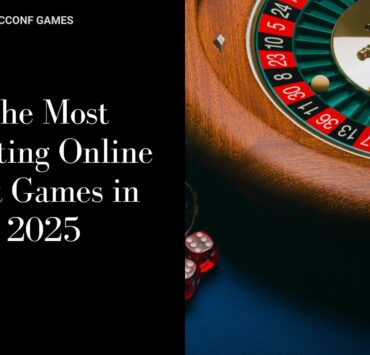Are you often looking for new game recommendations, but then you stop playing them when the initial excitement wears off? You’re not the only one. The gaming business has changed. It’s no longer simply about selling you a game once; today it’s a data-driven attempt to keep you, the gamer, interested for a long time. In 2025, successful game makers see a game as more than just a product; they see it as a living service that never ends. Because of this huge focus on keeping players, games are being made, sold, and updated in new ways. If you know these tendencies, you may choose the games that will really keep you entertained for a long time.
Why Long-Term Engagement is the New Launch Day
Newzoo says that the global gaming business is huge and will be worth more than $188 billion by 2025. That amount is big, but growth is becoming more intentional and less about volume. This implies that every player is more important than ever. Developers can’t just sell millions of copies and then leave anymore. They need to focus on raising the Lifetime Value (LTV) of current gamers by giving them regular updates and fresh material that is interesting. Because there is so much competition for your time, games with bad live-service roadmaps won’t last.
The Dominance of Hybrid Monetization
The line between traditional Free-to-Play (F2P) and premium games has almost entirely dissolved. The Hybrid Monetization model is the industry standard now. This plan combines many ways to make revenue to appeal to all kinds of players. For instance, a game may include a Battle Pass with seasonal awards for devoted players, cosmetic In-App Purchases (IAP) for people who want to make their experience unique, and Rewarded Ads that let people who don’t pay receive little in-game goodies. This method is meant to find a balance between the player’s experience and making money, so that both paying and non-paying players may enjoy the main game.
How AI Customizes Your Gaming Experience
Using Artificial Intelligence (AI) in a smart way is one of the best ways to keep customers. Not only are developers using AI to make better Non-Player Characters (NPCs), they’re also using it to make the game more personal. AI programs check out your skills, how you play, and what types of things you like the most. This lets you have features like adaptive difficulty, which alters the level of difficulty just enough so you don’t become bored or angry. It also changes how companies and events in the game are displayed, making recommendations for new content feel more tailored to your likes than ones that are more general.
Content Beyond the Game: The Broader Digital Ecosystem
The goal of keeping a user engaged through personalization and real-time data is a core principle shared across the entire digital landscape. Think about platforms that rely heavily on continuous user interaction. Streaming services constantly use viewing data to suggest the next show, and social media apps continuously update your feed based on engagement metrics to keep you scrolling.

This data-driven model extends to highly specialized platforms as well. Many different kinds of digital platforms operate on complex, real-time data analysis to deliver a personalized user experience. For instance, platforms that rely on the immediate presentation and analysis of fast-changing metrics, such as a online betting site like sportsbook Betway displaying live odds or a stock trading app showing market fluctuations, must use sophisticated, custom interfaces to ensure immediate, personalized engagement. These are just other examples of digital platforms, like our games, that rely on seamless, data-driven engagement to remain relevant in a competitive market.
The Gamer’s Takeaway: Choosing a Game with a Future
What does this mean when you are hunting for your next great game? Look beyond the initial reviews of the launch content. The Lyncconf.com team always looks at the developers’ post-launch commitment. Look for a clear, long-term plan, a community that is involved, and updates that happen often and are useful. If you want to remain playing a game for years to come, pick one with a solid live service and a clever, balanced way to make money. This will make sure the game is financially stable and that the developers are dedicated.






